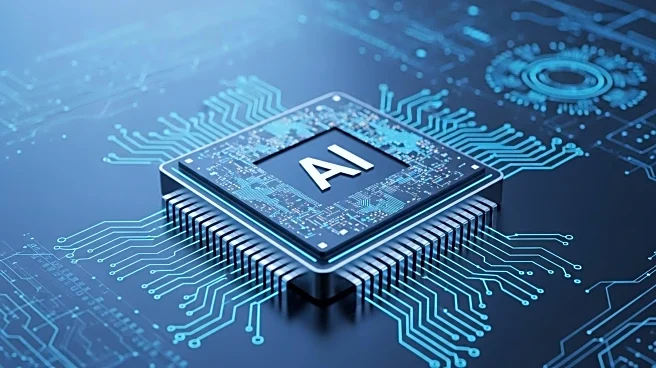What's Happening?
Meta Platforms has announced the acquisition of chip startup Rivos to bolster its custom silicon program, the Meta Training and Inference Accelerator (MTIA). This move is part of Meta's strategy to potentially replace Nvidia GPUs in parts of its data centers, aiming to cut costs and improve efficiency. Despite this development, Meta continues to heavily invest in Nvidia hardware, recently agreeing to a deal worth up to $14.2 billion with CoreWeave, an AI infrastructure firm that utilizes Nvidia-powered compute. Analysts note that while Nvidia's software ecosystem, led by CUDA, remains a significant advantage, the emergence of in-house chips from major buyers like Meta could eventually impact Nvidia's market position.
Why It's Important?
The acquisition of Rivos by Meta signifies a potential shift in the AI chip market, which has been dominated by Nvidia. As Meta and other tech giants like Google, Amazon, and Microsoft develop their own AI chips, the competitive landscape could change significantly. This could lead to reduced demand for Nvidia's products if these companies successfully implement their in-house solutions. However, Nvidia's current dominance and strong investor sentiment suggest that it will remain a key player in the near term. The development highlights the growing trend of tech companies seeking to reduce reliance on external suppliers and gain more control over their AI infrastructure.
What's Next?
Meta's acquisition of Rivos is expected to accelerate the development of its MTIA chips, potentially leading to a shift in workloads away from Nvidia. As these chips mature, Meta could reduce its dependency on Nvidia, impacting Nvidia's market share. Other tech giants are likely to continue investing in their own AI chip solutions, further intensifying competition. Investors and industry analysts will be closely monitoring these developments to assess the long-term implications for Nvidia and the broader AI chip market.
Beyond the Headlines
The move by Meta to acquire Rivos and develop its own AI chips reflects a broader trend in the tech industry towards vertical integration. By controlling more aspects of their technology stack, companies can optimize performance and reduce costs. This shift could lead to significant changes in the supply chain dynamics of the AI industry, with potential impacts on pricing, innovation, and market competition.









